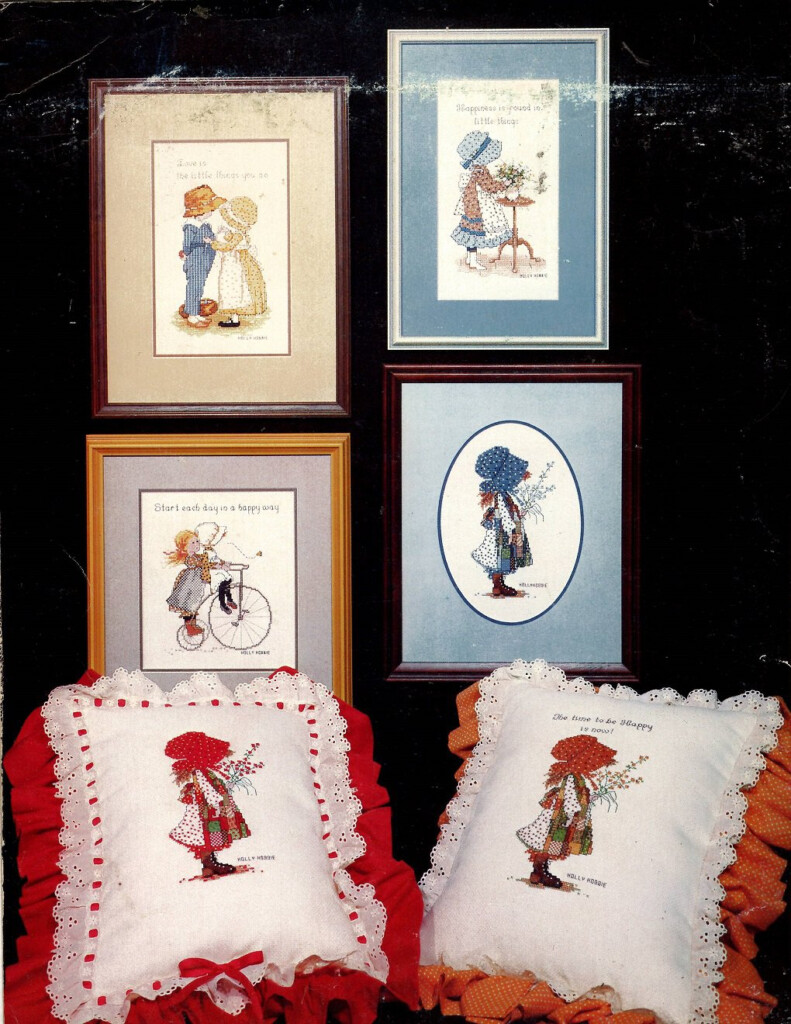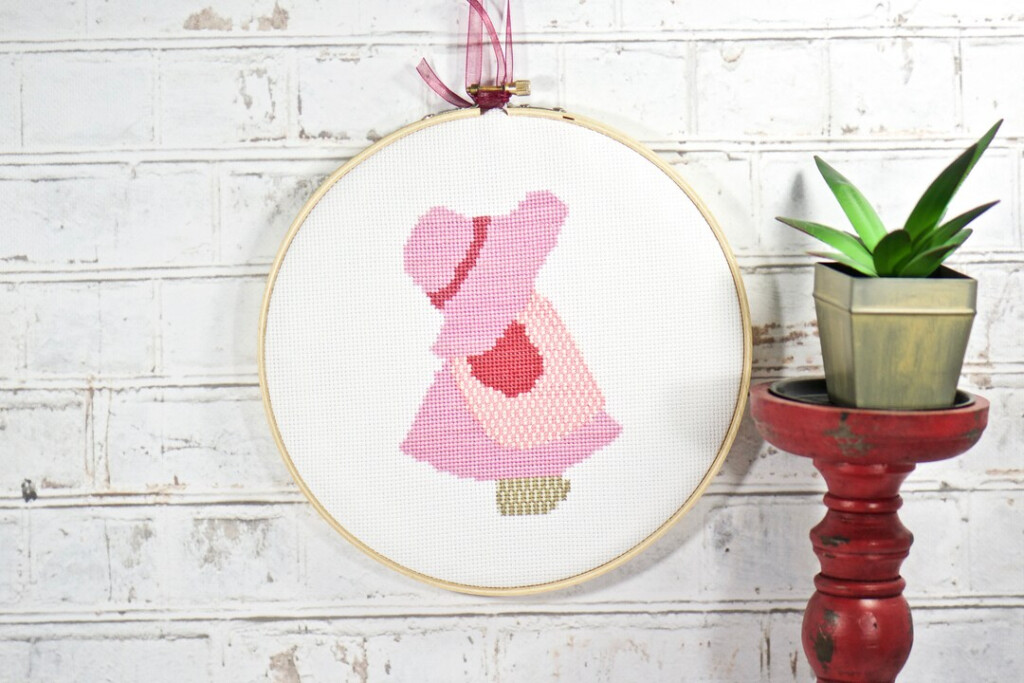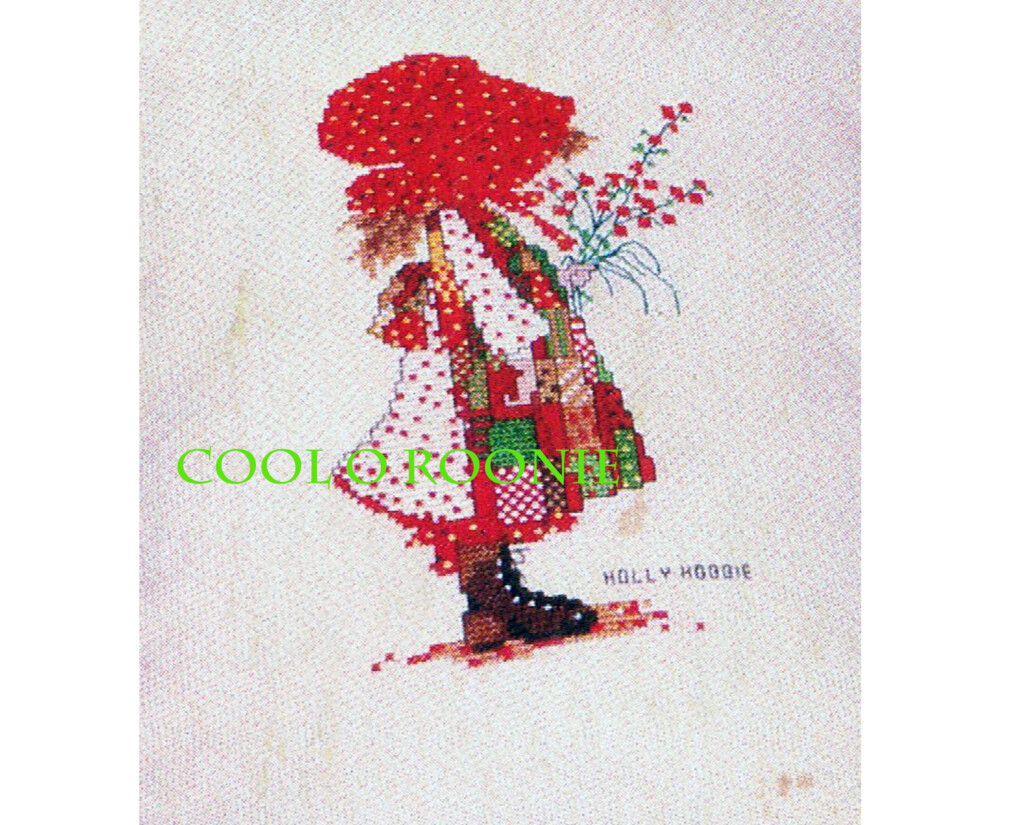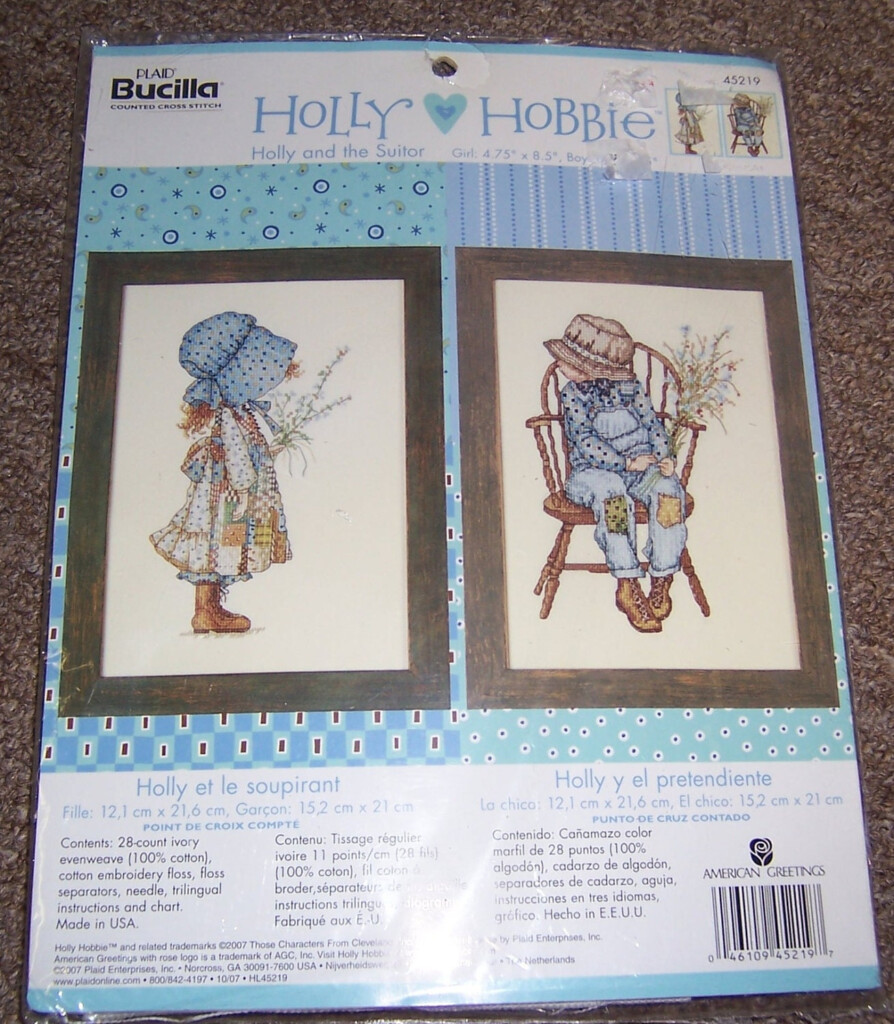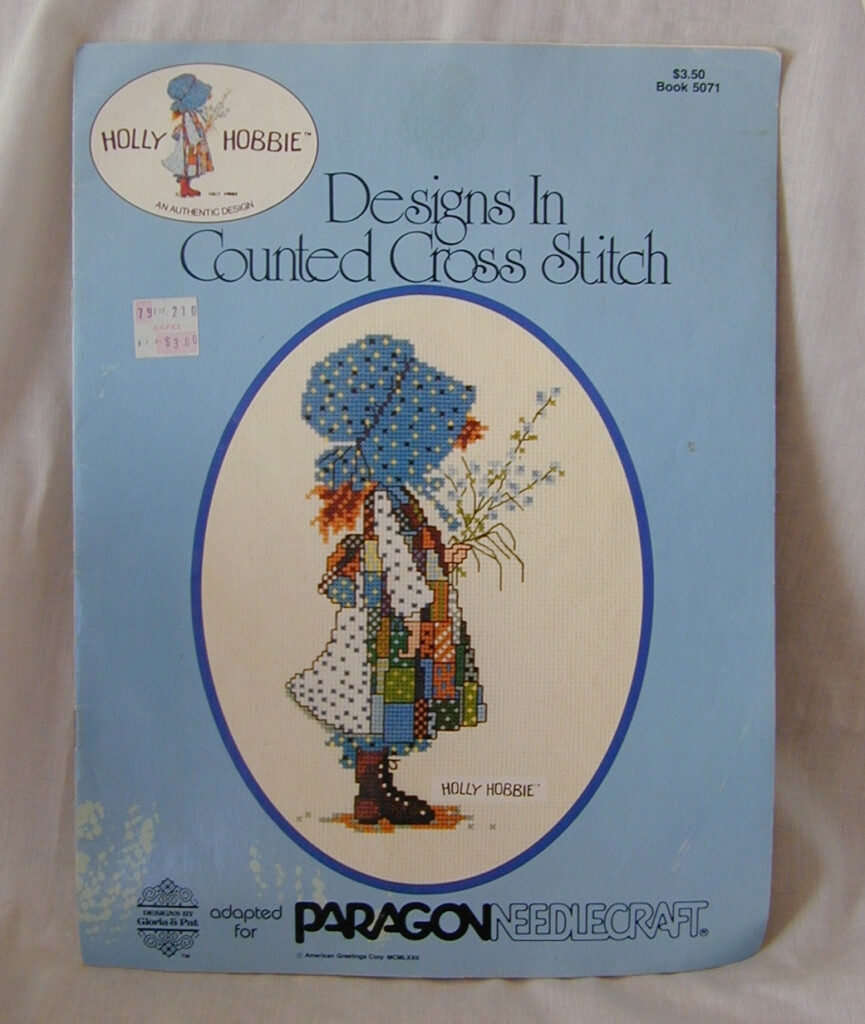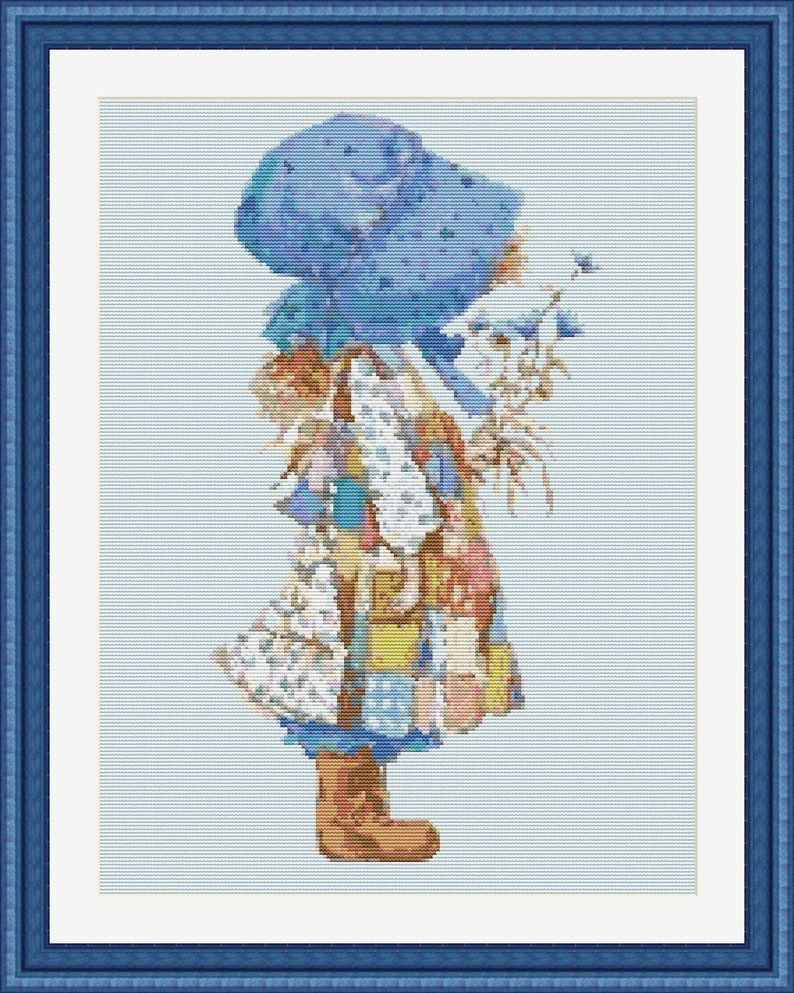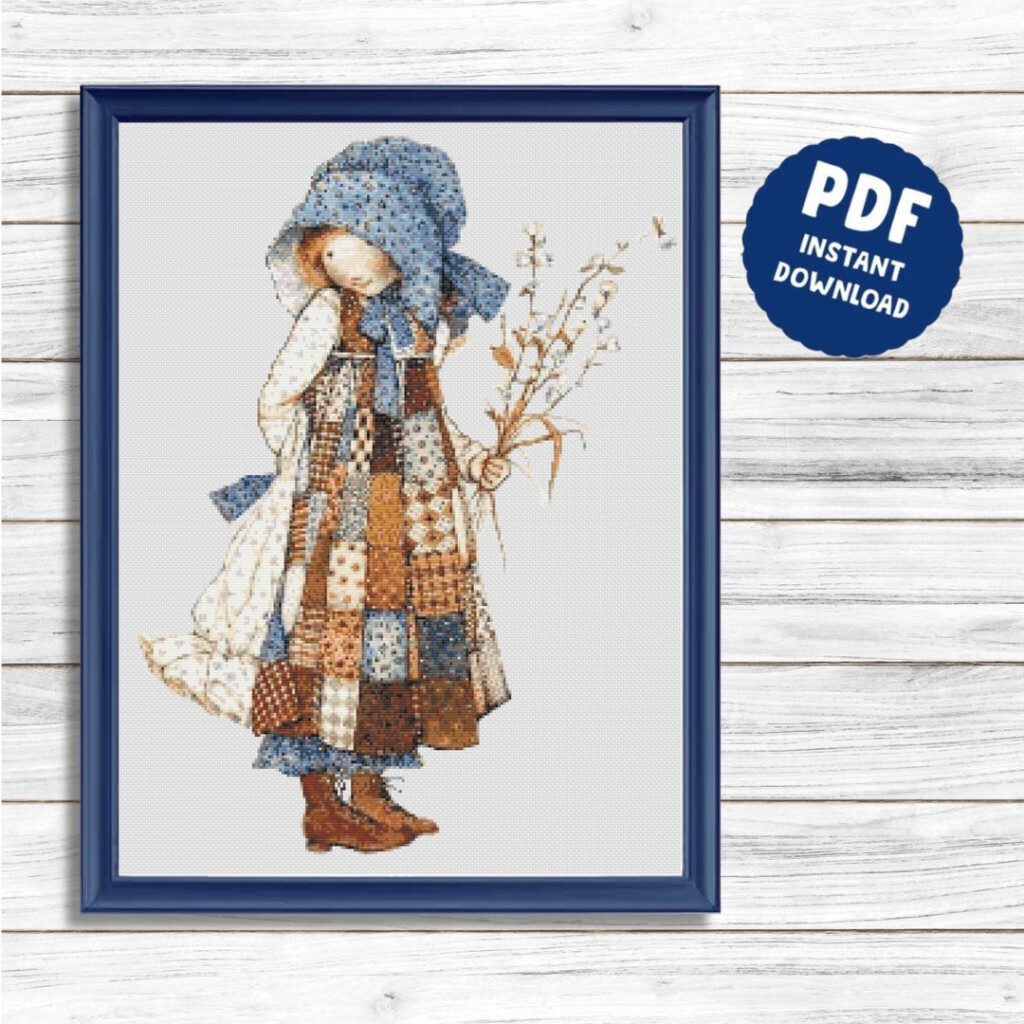Holly Hobbie Cross Stitch Patterns – Cross stitch is a timeless and peaceful embroidery technique that enables you to create sensational layouts with simply a needle, thread, and fabric. Whether you’re a beginner or a skilled stitcher, recognizing Holly Hobbie Cross Stitch Patterns is essential to crafting stunning items. In this overview, we’ll check out every little thing you require to understand about cross stitch patterns, from crucial materials to advanced techniques, making sure that you obtain the confidence to develop detailed and professional-quality styles.
What is a Holly Hobbie Cross Stitch Patterns?
A Holly Hobbie Cross Stitch Patterns is a grid-based design that guides stitchers in creating an embroidered photo. Each square on the pattern represents a stitch, with various colors and signs representing certain thread shades. These patterns can vary from basic themes to detailed artworks, offering an infinite selection of innovative possibilities. Recognizing how to review and comply with these patterns properly is essential for both accuracy and efficiency in your sewing jobs.
Why Use a Pattern?
- Consistency: Ensures harmony in stitches and design, making your job show up polished and specialist.
- Assistance: Helps novices comply with an organized approach, minimizing mistakes and complication.
- Innovative Freedom: Allows customization with different shade choices, making every piece unique to the stitcher.
- Scalability: Can be gotten used to different fabric sizes and stitch counts, making it adaptable for numerous job sizes.
- Performance: Saves time by giving a clear roadmap, assisting stitchers prepare their work in development and stay clear of unneeded blunders.
Materials Needed for Holly Hobbie Cross Stitch Patterns
To begin with cross stitch, you’ll need the right materials. Here’s a break down of important devices:
| Material | Summary |
|---|---|
| Fabric | Aida towel is frequently made use of as a result of its easy-to-count grid. Linen and evenweave textiles supply finer detail, excellent for innovative stitchers. |
| Threads | Embroidery floss, normally DMC, Anchor, or Madeira brand names. Available in hundreds of colors to bring layouts to life. |
| Needles | Tapestry needles with blunt pointers to prevent fabric damage. The best dimension depends upon fabric kind and personal preference. |
| Hoop/Frame | Keeps fabric taut, avoiding creases and unequal sewing, making sure consistency in your stitches. |
| Scissors | Tiny, sharp embroidery scissors for specific thread cutting and trimming excess fabric. |
| Pattern Chart | Printed or electronic Holly Hobbie Cross Stitch Patterns for assistance, supplying clear instructions on stitch positioning and shade selection. |
| Light | A well-lit work area assists protect against eye pressure and allows for much better precision in stitch positioning. |
| Thread Organizer | Keeps embroidery floss tangle-free and very easy to gain access to, making shade adjustments more efficient. |
Reading a Holly Hobbie Cross Stitch Patterns
A properly designed Holly Hobbie Cross Stitch Patterns offers all the necessary information to bring your design to life. Understanding how to translate a pattern appropriately makes certain precision and performance in your work.
1. Icons and Color Key
Patterns usage icons to stand for various thread shades. Each symbol corresponds to a details floss shade, normally noted in a legend with the thread brand and number. Acquainting yourself with this legend before starting will make stitching much smoother.
2. Grid System
Holly Hobbie Cross Stitch Patterns are set up on a grid where each square represents one stitch. The darker lines show every 10 squares, aiding you count and position your stitches properly. This structure makes sure alignment and avoids errors when sewing large, intricate styles.
3. Stitch Types
- Full Cross Stitches (X): The conventional stitch, developing an X shape that offers full coverage.
- Half Stitches (/): Used for shading and great details, developing a smoother slope effect.
- Backstitching (-): Used to detail and define shapes, including deepness and clarity to the design.
- French Knots (o): Adds structure and decorative accents, commonly used for eyes, flowers, and decorations.
- Lengthy Stitches (–): Stitches that span several squares to create distinct impacts, commonly utilized in specialized layouts.
4. Begin Point
Most patterns suggest starting at the facility to ensure proper placement. Locate the facility by folding the fabric in half both methods, marking the center with a water-soluble pen or a little stitch. Starting from the center aids preserve proportion and equilibrium throughout the project.
Fundamental Cross Stitch Techniques
Understanding these methods will enhance your sewing efficiency and results, guaranteeing that your tasks look expert and refined.
1. Preparing Your Fabric
- Laundry and iron fabric prior to beginning to get rid of wrinkles and possible spots.
- Utilize a hoop or frame to keep it tight, stopping misaligned stitches.
- If making use of Aida towel, bind the edges with concealing tape, fray check, or a zigzag stitch to prevent fraying in time.
- Think about gridding the fabric with washable fabric pens to aid with placement.
2. Threading the Needle
- Cut a piece of embroidery floss around 18 inches long to prevent tangling.
- Use one to three strands, depending upon fabric count and preferred protection for ideal outcomes.
- Thread the needle and protect the starting end with a loop or tiny knot, or utilize the “loophole technique” for a neater back.
3. Sewing Methods
- Paddle Method: Complete one half-stitch (/) across a row, after that return with the other half () to form an X. This serves for maintaining stitches attire.
- One-by-One Method: Complete each complete X prior to transferring to the next stitch, perfect for patterns with regular color changes.
- Parking Method: Useful for complex layouts, enabling stitchers to deal with numerous shades without complication.
4. Protecting Threads
- Prevent knots at the rear of your work; instead, weave the thread under previous stitches for a clean and expert finish.
- Maintain the back neat to avoid thickness and irregular stress, which can misshape the fabric.
Common Mistakes & & How to Avoid Them
| Blunder | Option |
| Miscounting stitches | Constantly cross-check the grid and use a highlighter to mark finished areas. Double-check prior to moving forward. |
| Irregular tension | Keep stable stress; stay clear of drawing as well limited or leaving stitches too loose. Consistency is vital to professional-looking job. |
| Incorrect thread color | Confirm the pattern secret prior to starting each area to stop time-consuming blunders. |
| Fraying fabric | Safe edges with tape or a sewing maker zigzag stitch. Using a hoop assists minimize fraying. |
| Messy back | Maintain the back neat by weaving in loose ends nicely. This will certainly protect against lumps when framing the ended up piece. |
Download Holly Hobbie Cross Stitch Patterns
Final Thoughts
Holly Hobbie Cross Stitch Patterns use limitless possibilities for imagination and craftsmanship. Whether you’re adhering to a classic design or producing something special, comprehending the principles of checking out patterns, choosing materials, and refining strategies will assist you produce sensational tasks. Maintain exercising, exploring, and most notably, appreciating the procedure of stitching! Cross stitch is not simply a pastime– it’s an art form that allows you to bring intricate designs to life, one stitch at once.
Pleased stitching!
